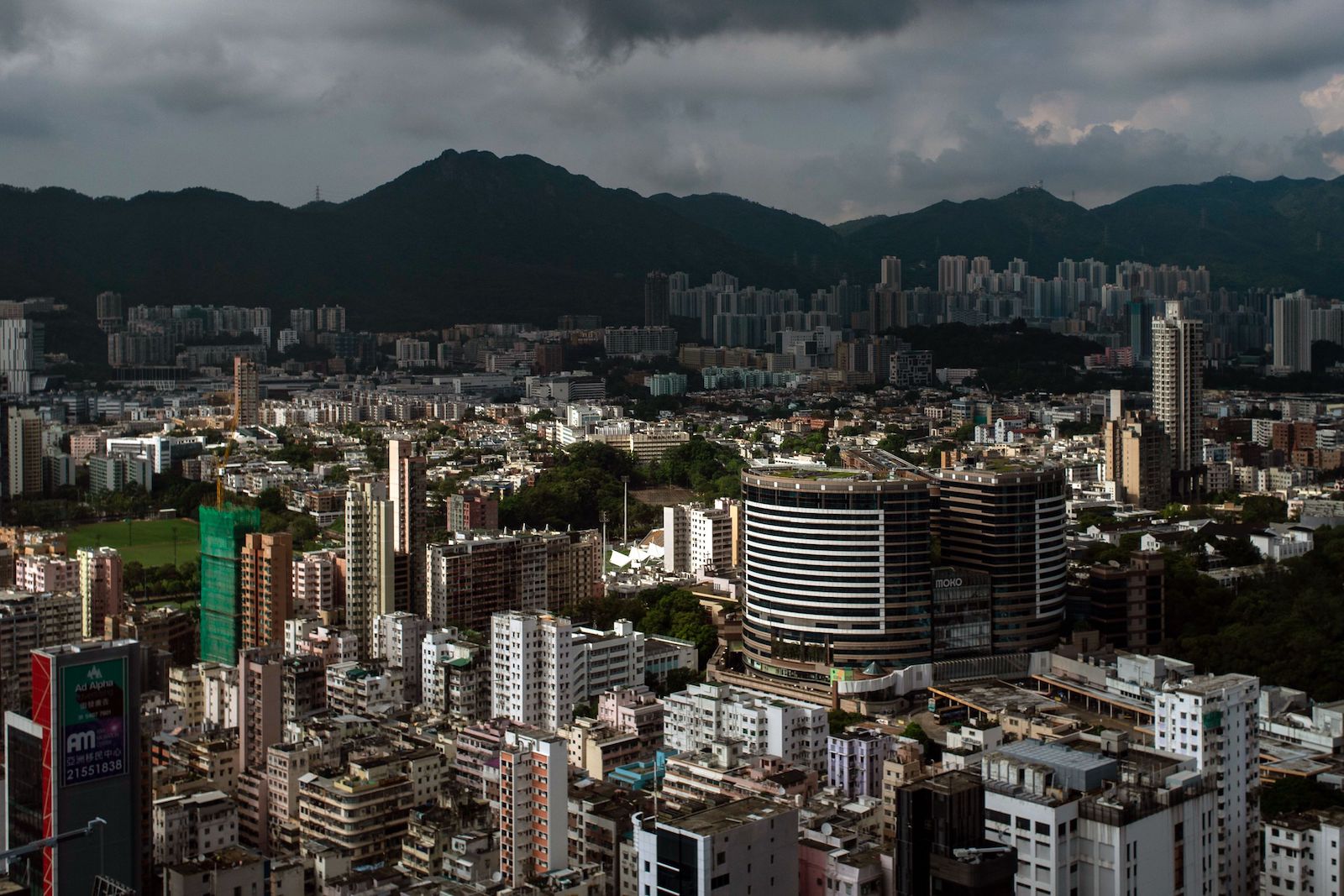Hong Kong vs. Singapore: Can Housing Prices Be Tamed?

A general view shows residential and commercial buildings in Hong Kong. Housing markets in Hong Kong and Singapore are among the most expensive in the world.
Photo: Philip Fong/AFP/Getty Images
Housing markets in Hong Kong and Singapore are among the most expensive in the world. But while housing prices in Hong Kong have surged by 275 percent since early 2009, Singapore’s post-crisis real estate boom has largely cooled off since 2013.
Housing affordability has been a major issue for policymakers in both Hong Kong and Singapore. One key difference between the two is that Singapore has continuously created land for urban use, which makes land and housing supply more readily available to meet the changing housing needs. In contrast, Hong Kong’s progress in this area has stagnated, leading to a large, persistent housing demand-supply gap.
Both cities have implemented macroprudential measures to rein in a housing bubble, but their impact has not been long-lasting, and the measures can have unintended consequences.
Macroprudential Measures to the Rescue?
Hong Kong and Singapore have both tried to rein in the pressures of housing prices by implementing macroprudential measures. These policy tools include caps on loan-to-value ratios on mortgages and debt-servicing ratios of mortgage borrowers—and additional stamp duties levied on housing units sold within certain holding periods as well as those targeting foreign buyers. In general, the measures on mortgages should help to curb banks’ mortgage loan growth and limit their exposure to property developers, which should indirectly dampen housing prices, whereas the additional taxes should constrain speculative activity and investor and foreign demand.
These measures are likely to have effects such as improved banking sector health, slowed buildup of household debt, and reduced speculative behavior. But their impact on housing prices does not appear to have been long-lasting. This is evident in Hong Kong, where several rounds of property cooling measures have failed to cool the surge in housing prices (Exhibit 1). This was also the case in Singapore prior to 2014 (Exhibit 2).
The dampening effect of macroprudential measures does not seem to be strong enough to offset the impact of tight housing supply and ultra-low mortgage interest rates. Moreover, these measures could have unintended consequences that would offset some of their anticipated impact.
Exhibit 1: Hong Kong: Housing Prices and Completions
In Hong Kong, the measures have changed the market structure. Due to the macroprudential tightening, some potential homebuyers find it more difficult to get mortgage financing from banks. Since 2015, cash-rich developers have changed their strategies and started to provide mortgage financing themselves, boosting new home sales. In the past three years, primary market sales have accounted for 30 percent of housing transactions, up from 17 percent on average in the decade prior to 2015. This gives property developers more pricing power and generates further upward pressure on overall housing prices.
Exhibit 2: Singapore: Housing Prices and Completions
Meanwhile, in Singapore, macroprudential measures have forced some private housing demand toward higher-end public housing, thereby boosting the resale prices of these public housing units, although the overall public house price has trended down in recent years, driven by significant increases in public housing supply.
Why Has Singapore Been More Successful?
Singapore has had more success in taming its housing bubble because the city has more flexible or “elastic” land and housing supply than Hong Kong. Singapore has adopted long-term land use planning since the 1960s, and this effort has been maintained over the past few decades. As there are adequate land reserves that can readily be converted for urban use to keep up with population trends and economic growth, the authorities can increase land supply at will.
By comparison, land supply in Hong Kong has not kept up with housing needs or the economy. While Hong Kong also had large-scale development plans prior to the early-2000s, such as the development of new towns, land development slowed in response to the Asian financial crisis in 1997-98 and virtually stopped after 2005. For instance, reclamation, one of the major sources of creating land, fell by 80 percent.
There is also less pressure on demand for private housing in Singapore. Due to the macroprudential measures imposed, foreign demand and speculative activity has plunged in both cities. Separately, restrictions on foreign labor in Singapore have also led to reduced foreign demand. Arguably, in recent years, demand for private housing in both cities has been driven by genuine local buyers to a larger degree than in previous years. However, as less than one-fifth of citizens live in private housing in Singapore, compared to over half in Hong Kong, the demand pressure on Singapore’s private housing is much smaller. Hence, any housing bubble in Singapore should be easier to tame. Also, while there are pressures on public housing in Singapore, new supply of public housing units has increased since 2009, and public housing prices have come off.
In contrast, Hong Kong has large housing demand-supply gaps in both private and public housing. New private and public housing supply has dropped by half in the past decade. In recent years, private housing supply has repeatedly fallen short of the annual target of 20,000 units, which would help close the private housing demand-supply gap. Meanwhile, families may need to wait, on average, 5.3 years to get into public rental housing, largely because of inadequate land supply for any large-scale public housing projects.
What Can Hong Kong Do?
Possible counter options include restarting large-scale land reclamation and tapping into private developers’ agricultural land reserves through public-private partnership arrangements, although collusion between the government and private developers must be avoided. The latter option is important because it could supply over one-fifth of the land needed in the next three decades, and agricultural land can easily be converted for urban use, though it will still take several years to develop essential infrastructure and build housing units.
Hong Kong’s government has started to become more proactive in dealing with the land and housing supply problem. The launch of the so-called big debate public consultation between April and September aims to generate public consensus on ways to provide land and housing supply that will be sufficient to cover the estimated land demand in the next three decades. The multipronged, forward-looking approach taken by the Hong Kong government should increase flexibility in land and housing supply and resolve the housing shortage problem over the long term. And supply is expected to adjust more in response to market conditions—more during upcycle and vice versa.
Implications Going Forward
The Hong Kong government is expected to continue to let the private sector play a bigger role in the property market, while public housing will continue to dominate in Singapore. Meanwhile, considering that Hong Kong’s properties are the least affordable in the world (with a house price-to-income ratio of well over 18 years according to the Hong Kong Monetary Authority), they are very vulnerable to any global shock that seriously undermines confidence in the economic outlook. Although the current surge in housing prices has boosted consumption growth over the past year or so, this also means that a correction in the property market could lead to a serious downturn in consumption and the wider economy.
Meanwhile, macroeconomic factors are also at play in affecting housing prices in the next few years. Although the housing shortage will continue to support Hong Kong’s housing prices in the near term, rising mortgage rates will place mild downward pressure on housing prices in the next couple of years. However, a sharp downward adjustment in prices and the wider economy could be triggered by a major global shock, more so in Hong Kong than in Singapore. For now, Singapore’s housing market will remain oversupplied, and following July’s property cooling measures, we expect housing price growth to ease once again.






